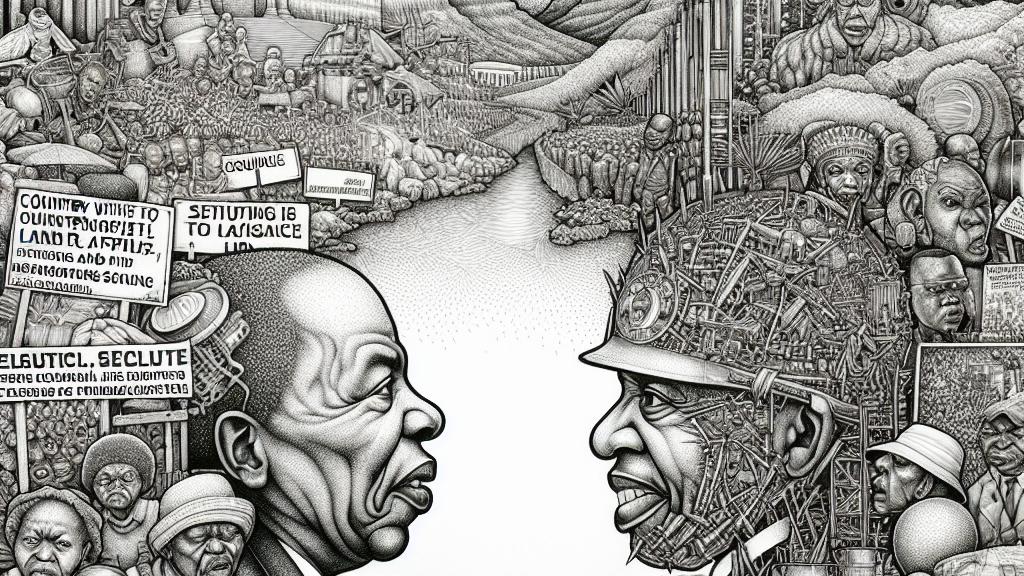Understanding the Dispute Between South Africa and the US Over Land and Aid
Overview
- South Africa's controversial land reform law escalates tensions with the US government.
- Trump's abrupt cut of $440 million in aid raises critical ethical and economic dilemmas.
- The future of trade relations hangs in a precarious balance as both countries navigate complex interests.

A Volatile Crossroads
At the heart of this brewing storm is South Africa's new Expropriation Bill, which allows the government to seize land without compensation under specific conditions aimed at addressing historical injustices. This legislative move, signed into law by President Cyril Ramaphosa, rapidly caught the attention of President Donald Trump, who decried it as 'immoral' and 'unjust,' particularly concerning the rights of the white Afrikaner minority. His swift reaction took many by surprise, resulting in an audacious freeze of approximately $440 million in American aid. This is not merely a financial adjustment; it represents a seismic shift in relations that have generally been cooperative since Nelson Mandela’s landmark election ended apartheid in 1994.
The Ripple Effects of Aid Cuts
The ramifications of this aid freeze are far-reaching and deeply concerning for South Africa. The country relies significantly on US assistance, especially for crucial programs like Pepfar, which plays a vital role in combating the HIV/AIDS epidemic. For context, Pepfar accounts for about 17% of South Africa's treatment efforts, supporting nearly 5.5 million people. However, if Trump's punitive strategy extends beyond simply targeting aid to involve trade penalties, South Africa risks losing access to the fruitful US market under the Africa Growth and Opportunity Act (Agoa). This would leave a gaping hole in its economy, threatening an estimated $2.7 billion in annual revenue. Given the nation's reliance on exports—including cars, textiles, and essential minerals—the potential fallout could ripple through every level of society, from factories to families, causing widespread distress.
Political Motivations Shaping Economic Realities
Delving deeper, the political motivations behind this dispute reveal a troubling narrative around race and land in South Africa. Trump's open alignment with Afrikaner interest groups fuels a narrative of polarization, where these groups argue against what they see as 'race-based legislation.' His remark about aiding Afrikaner refugees in the US shows how domestic policies are becoming intertwined with international relations, transforming an internal issue into a global spectacle. Furthermore, the economic implications are staggering: South Africa's status as a cornerstone supplier of platinum, gold, and other critical minerals means that any shift in trade relations could significantly affect the global economy. Industries in the US that depend on these imports could suddenly find themselves vulnerable, illustrating the intricate web of commerce that connects both nations in unexpected ways.

Loading...